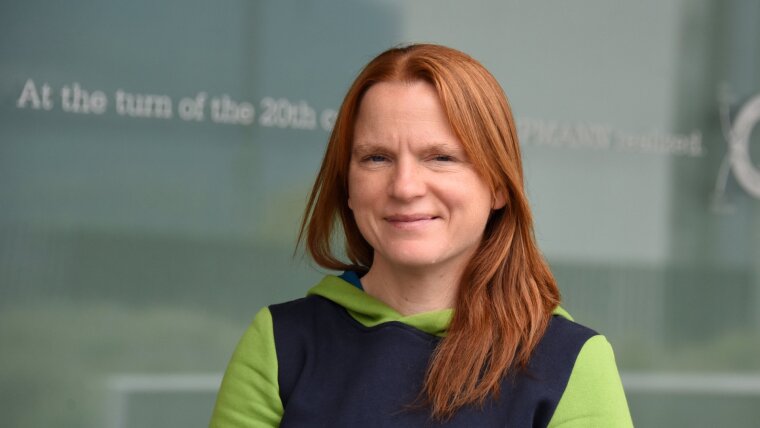
- Research
Published: | By: Kerstin Wagner
The German Research Foundation (DFG) is funding seven new research groups (FOR) with a total of 33 million euros. One of these, DFG-FOR 5872, is dedicated to the role of molecular chaperones in the regulation of misfolded proteins in cellular condensates. The aim is to gain a better understanding of the development of age-related neurodegenerative diseases and to develop new therapeutic approaches. The DFG research group is coordinated by Prof Dr Janine Kirstein from the University of Jena at the Leibniz Institute on Ageing - Fritz Lipmann Institute (FLI) in Jena.
The funding of the research groups can last up to eight years and is intended to specifically support innovative team research. Proteins that are unable to achieve their correct three-dimensional structure pose a significant threat to the health and survival of cells and organisms. This is because many age-related neurodegenerative diseases such as Alzheimer's, Huntington's or ALS (amyotrophic lateral sclerosis) arise because misfolded proteins lead to the formation of aggregates or fibrils or accumulate in biomolecular condensates - i.e. membraneless, macromolecular structures within the cell. It is known that molecular chaperones play a central role in this process. These proteins support other proteins in folding, transport and stability. However, the underlying processes are still largely unexplained.
This is precisely where the new research group "Chaperone-mediated regulation of the emergence of disease-causing amyloid protein conformations in biomolecular condensates" (FOR5872 Chaperone-mediated regulation of the emergence of disease-causing amyloids inside biomolecular condensates) comes in. The aim is to investigate the role of molecular chaperones in the regulation of misfolded, disease-relevant proteins in biomolecular condensates and to clarify how chaperones influence the folding and aggregation of these proteins. Prof Dr Janine Kirstein, group leader at the Leibniz Institute on Ageing - Fritz Lipmann Institute (FLI) and Professor of Biochemistry of Ageing at the Friedrich Schiller University is the spokesperson of the DFG research group.
"I am extremely pleased about the DFG's funding approval. Together with an excellent team of scientists from Germany and Israel, we want to spend the next few years investigating the central question of how chaperones regulate disease-causing protein conformations in cellular condensates - a hitherto poorly understood but important process that is directly linked to age-related neurodegenerative diseases," reports Prof Kirstein.
In addition to researchers from Jena, scientists from Dresden, Bochum, Oldenburg, Berlin, Heidelberg, Augsburg, Göttingen and Israel are also involved in the research group.
Contact:
Beutenbergstraße 11
07745 Jena Google Maps site planExternal link